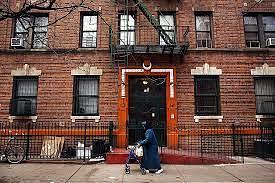Renewing Your NYC Rental-Stabilized Apartment Lease? It’s Complicated This Time
If you live in one of New York City’s nearly one million rent-stabilized apartments, we want to make sure you know your rights when renewing your lease this year, because the rules for raising the rent are a little complicated.
The city Rent Guidelines Board, which decides how much leases can increase each year in stabilized apartments, decided to freeze the rent for the first six months — and then allow limited increases in the second six months for one-year leases.
You’ll need to make sure that your new lease shows the changes correctly so that you’re not charged too much.
Here’s everything you need to know to make sure you’re signing the correct lease and paying the right rent.
First, is your apartment rent-stabilized?
If you’re not sure whether your apartment is rent-stabilized, this site can walk you through the process of figuring it out. To know for sure, though, you’ll have to request your rent history from the state.
How does lease renewal work for rent-stabilized apartments?
Rents for rent-stabilized apartments can potentially go up by a certain percentage each year. A group called the city Rent Guidelines Board decides what that percentage is and how much rents can increase.
Your landlord needs to give you a written notice about your opportunity to renew your lease at least 90 days, or about three months, before your renewal date. So, if you have an October lease, your landlord should have notified you about your lease renewal by July 1. If you have a November lease, you should get a lease renewal form by Aug. 1.
As a rent-stabilized tenant, you have a right to a lease renewal. You can choose to renew your lease for one or two years, and you need to let your landlord know your choice within 60 days of receiving the renewal form.
How much did rent increase for next year?
That’s where it gets a little tricky. The board in June raised the rent, but only for the second half of the year.
For this coming year, if you renew a one-year lease starting on or after Oct. 1, the rent will stay frozen for the first six months. Then, it can increase by up to 1.5% for the second six months.
You heard that right: It’s frozen for the first half of the year, then it could go up for the second half of the year. That is what’s confusing both tenants and landlords.
For two year renewals, the rent can increase by up to 2.5%.
So do I know if my landlord gave me the right kind of lease?
Your lease now needs to reflect that rent will stay the same for the first six months before going up. You can see what the lease renewal form should look like here.
Andrea Shapiro, a program manager at the Met Council on Housing, suggested tenants check their landlord’s math themselves. She said figure out how much 1.5% of your rent is, and make sure it’s only added for the last six months, not the whole year.




